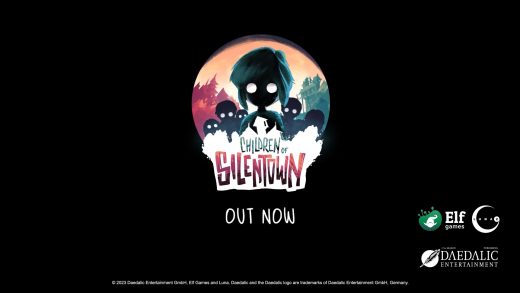:format(webp)/https://www.thestar.com/content/dam/thestar/entertainment/books/2023/05/06/andrew-mccarthy-brat-pack-actor-turned-travel-writer-walked-the-500-mile-camino-with-his-teenage-son-it-changed-them-both/main_andrew_mccarthy_travel_book.jpg)
500 miles is a lot. It is, as we all remember, the number of miles a pining lover was willing to walk in the Proclaimers’ song to prove his fealty. It’s the length of the Camino de Santiago, the famed pilgrimage across Spain, beginning in France then going south and west, that the faithful or just the curious have been walking, as legend has it, to reduce the punishment for their sins, set themselves a challenge, or perhaps simply discover something about themselves as they plod those miles of roads that pass through golden fields, villages and small cities. It’s also the length actor, director and writer Andrew McCarthy has walked — twice — taking the route that pilgrims for at least a millennium have been following in honour of the apostle James.
“Everyone I know who has walked the Camino has had a life-changing experience. Everyone,” McCarthy says in an interview on the phone from his home in New York. “There’s something about the Camino that’s beyond just walking 500 miles. Pilgrimage is a funny thing in that there’s nothing new, there’s no discoveries to be made. You’re walking in the footsteps, literally, of millions of people over centuries and centuries. And there’s something in that that’s undeniable once you begin.”
But twice? The first time, he writes in his new memoir, “Walking With Sam: A Father, A Son, And Five Hundred Miles Across Spain,” was when he was in his 20s, after starring in the movie “Pretty In Pink,” among others, and being included as part of Hollywood’s 1980s Brat Pack of young actors. He did it at that time, he writes, because “I harboured a notion that I had not earned my accomplishments, that I hadn’t done the requisite work, that it was all merely a fluke, that I didn’t deserve it … a lightweight.” Fame and success had come quickly to him. Whether, he writes, the notion was true or not, it was how he came to perceive himself.
Walking the Camino, he writes “allowed me to reclaim the narrative of my own life.”
He decided to go the second time because he’d wanted to do it with his son, Sam.
“We were coming out of the pandemic where there was so much fear, we were being pummeled by so much fear. I had the notion that I should walk this again, I needed another booster shot of fear relief,” he says.
At the same time his son was “coming of age” — he’d gone through his first real breakup and, McCarthy says, “I just thought it might be a valuable thing for him to do, if I could keep him on the road long enough for the penny to drop.”
Parenting changes when your kids come of age, although McCarthy did plenty of the traditional parenting, too — trying to get Sam out of bed to start walking in the morning, arguing about smoking (and finally giving in and teaching him how to ask for cigarettes in Spanish). But he also learned when to keep quiet. “I didn’t have to do anything, except walk beside him and be there.”
On the first day of their journey, he recounts, Sam says “God, what’s the point of this f—ing walk,” and on the last day he says “Dad, this is the only ten-out-of-ten thing I’ve ever done in my life.”
There are many different ways of doing the Camino: some people don’t actually do the whole thing, they join close to the end and walk for a couple of days — that, to them, provides a sense of accomplishment, perhaps. Others have walked it barefoot. Others cycle, waving to the walkers as they push their way on to the Catedral de Santiago de Compostela in the city of Santiago.
Sam kept them on track using TikTok when the ancient arrows pointing the way and various maps don’t; and both of them kept in touch with home occasionally, Sam a little more so. But there was also a liberation from devices, McCarthy tells me, a change in the way they used them.
“We use devices … because we want something to happen, we want the reward, we want stimuli. The more you’re walking, the more you’re engaged in the now and the present, the less you feel ‘I need a mood changer, I need a boost’,” he says. And the more they walked, “naturally, the devices then fell away and were used much more in the utilitarian fashion they were designed to be used as opposed to being used as an addiction or a default to avoid what we’re feeling.”
We’re having a bit of technical difficulty with the phone line. McCarthy has called my office phone which routes through my computer — I left my open newsroom desk to find a quiet room in which to speak with him, but the room is echoey. There seems to me to be a metaphor about connection, technology and simpler times, but perhaps I’m being fanciful.
There are traditions McCarthy followed on the journey and encouraged Sam to, as well. Like choosing a walking stick or carrying a scallop shell, a symbol of the Camino. In a somewhat poignant moment, McCarthy reveals that, deep in the bottom of his backpack he’d carefully packed the scallop shell he had carried on his first journey and kept all these years. He was hoping to pass it on to Sam. “I’ve imagined a touching scene as we are about to set out,” he writes. But Sam grabbed a shell from a table in the Pilgrim’s Office, says “This one’s fine,” and left his father’s “sentimental fantasy” to “fizzle.”
“I had mixed feelings about burdening my son with lugging around a relic of my past — the-sins-of-the-father are enough without such obvious metaphors,” McCarthy writes. He picks a new shell, too, creating a new metaphor anyway, about starting a new relationship with his son as an adult.
They stayed in little pensions along the way, instead of in dormitories or shared accommodations, like some others on the journey. McCarthy writes that “I’m a credit card pilgrim and I make no apologies.” I ask him whether he regrets doing it that way.
“No. One of the things that walking does is reveal yourself to you, and the truth of you.
“I had no need to prove by sleeping in a dormitory with 100 other people, getting stepped on as they go to their upper bunk and waiting in line for the bathroom — that doesn’t make it a more valid trip than if I stayed in a little pension and got a good night’s sleep … It’s just adding more hardship to your journey and that’s just sort of indulgent and grandiose, in a certain way, which I didn’t feel the need to do.”
He’s travelled plenty over the years, turning to travel writing after his first walk of the Camino. He began, he tells me, “by writing about what happened on my journeys just for myself as a way of clarifying my thoughts and keeping myself company.” He wasn’t interested in keeping a journal, but in writing stories about what happened. He did that for a decade until, one day, he was having lunch with an editor and said, ‘you should let me write for your magazine’ and he said ‘you’re an actor,’ to which McCarthy replied ‘yeah but I can tell a story.’
And he did.
That piece did well, and the pieces kept coming. He wrote books, won accolades and awards, became an editor-at-large for National Geographic Traveler magazine.
Travel is important, he says. “It’s sort of been the university of my life, it’s how I’ve learned about myself and my place in the world. I’ve gotten over so much in fear I had in the world by putting myself out into the world … Underneath all the travel articles, and stories that I would write was always the notion that travel is important and valuable and worthwhile, and something that we should be actively doing.”
When asked where he was going next, he says he’d just returned the previous night — on an 18-hour flight — from Botswana for a magazine article he’s doing. He took his 9-year-old son this time. “That was a big wonderful experience, as well.”
Will that become another book? What’s he working on next? He said he has an idea of what he might do, but he won’t say what it is.
“It’s like when I first acted. (I was) 15 years old, when I walked out on stage, in my high school play as The Artful Dodger, and my life changed. I knew I was going to be an actor in that instant. And I knew not to tell anyone, because it was such a frail little flicker of a flame that anybody could have walked by and blown it out.
“Like any good idea for me, it takes a while to let it ferment and take root and then it’s just it’s own thing, and then you follow that.”
It’s sound advice whether you’re embarking on a new road in life, or simply taking the first step on the Camino. Some things, after all, are worth doing; some things are worth finishing.
JOIN THE CONVERSATION
does not endorse these opinions.
:format(webp)/https://www.thestar.com/content/dam/thestar/entertainment/books/2023/05/06/andrew-mccarthy-brat-pack-actor-turned-travel-writer-walked-the-500-mile-camino-with-his-teenage-son-it-changed-them-both/sam_and_andrew_mccarthy_following_in_pilgrims_footsteps.jpg)
:format(webp)/https://www.thestar.com/content/dam/thestar/entertainment/books/2023/05/06/andrew-mccarthy-brat-pack-actor-turned-travel-writer-walked-the-500-mile-camino-with-his-teenage-son-it-changed-them-both/sam_and_andrew_mccarthy_stop_for_refreshment.jpg)
:format(webp)/https://www.thestar.com/content/dam/thestar/entertainment/books/2023/05/06/andrew-mccarthy-brat-pack-actor-turned-travel-writer-walked-the-500-mile-camino-with-his-teenage-son-it-changed-them-both/sam_and_andrew_mccarthy_clearly_feeling_the_pain.jpg)
:format(webp)/https://www.thestar.com/content/dam/thestar/entertainment/books/2023/05/06/andrew-mccarthy-brat-pack-actor-turned-travel-writer-walked-the-500-mile-camino-with-his-teenage-son-it-changed-them-both/sam_mccarthy_with_a_scallop_shell_a_badge_of_pride_.jpg)
:format(webp)/https://www.thestar.com/content/dam/thestar/entertainment/books/2023/05/06/andrew-mccarthy-brat-pack-actor-turned-travel-writer-walked-the-500-mile-camino-with-his-teenage-son-it-changed-them-both/long_flat_portion_of_the_camino_de_santiago.jpg)
:format(webp)/https://www.thestar.com/content/dam/thestar/entertainment/books/2023/05/06/andrew-mccarthy-brat-pack-actor-turned-travel-writer-walked-the-500-mile-camino-with-his-teenage-son-it-changed-them-both/walking_with_sam_by_andrew_mccarthy_book_cover.jpg)



